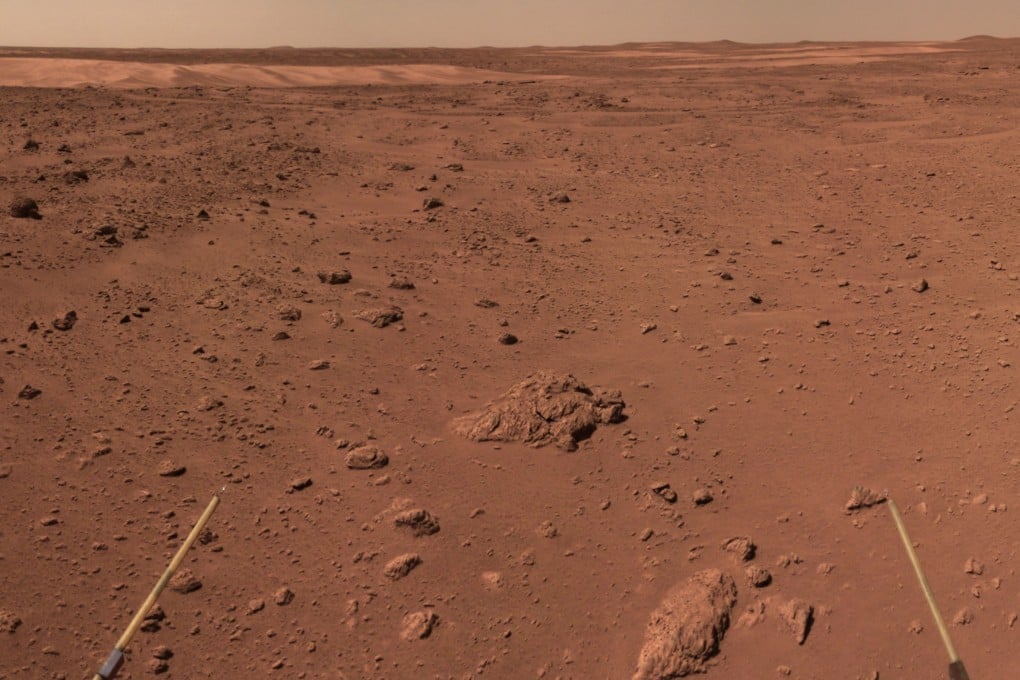China’s Zhu Rong rover finds evidence there could have been water on Mars more recently than thought
- Current geological age has been seen as a time when the planet was cold and dry, with no surface water
- But scientists say their analysis of data from the rover suggests a more active surface hydrosphere in this period

Scientists have long believed that Mars had a thicker, warmer atmosphere and liquid water on its surface billions of years ago, but that the planet cooled down as it lost its protective magnetic field about 4 billion years ago.
The current geological age known as the Amazonian epoch – thought to have begun 3.5 to 1.8 billion years ago – has been seen as a time when Mars was cold and dry, with no surface water.
The rover landed in a large plain in the northern lowlands of Mars called Utopia Planitia in May last year. Its main objectives are to investigate the morphology, mineralogy, space environment, surface structure and water or ice distribution of the southern part of the plain.
Scientists from the Chinese Academy of Sciences analysed the data on sediments and minerals from the plain that was gathered by the rover over its first 92 Martian days of exploration. Their findings were published in the peer-reviewed journal Science Advances on Wednesday.
